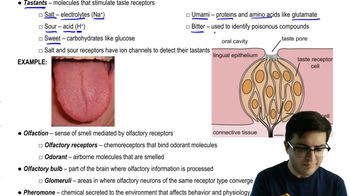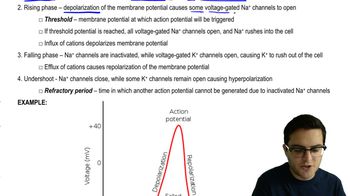Textbook Question
Contrast the structure of glycogen and chitin in terms of their monosaccharides, glycosidic linkages, and interactions between polysaccharide chains.
1909
views

 Verified step by step guidance
Verified step by step guidance



Contrast the structure of glycogen and chitin in terms of their monosaccharides, glycosidic linkages, and interactions between polysaccharide chains.
Lysozyme, an enzyme found in human saliva, tears, and other secretions, catalyzes the hydrolysis of the β-1,4-glycosidic linkages in peptidoglycan. Predict the effect of this enzyme on bacteria and how it may be involved in human health.
Galactosemia is a potentially fatal disease that occurs in humans who lack the enzyme that converts galactose to glucose. If you were a physician treating a person with this disease, which of the following would you have them exclude from their diet?
a. Maltose
b. Starch
c. Mannose
d. Lactose